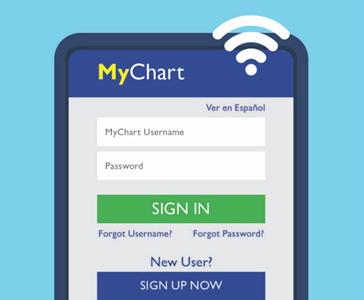Medical Records: Getting Organized
In a study of senior cardiac patients, researchers found that those who kept a personal health record enjoyed better health—perhaps because they and their caregivers could better see their health picture. In an emergency, having records at the ready can also be helpful for health care providers.
But getting health information organized can seem so overwhelming. The good news: You can get the upper hand on records and make organizing key health information for you and your loved ones easier with these tips from Johns Hopkins geriatric medicine physician Alicia Arbaje, M.D., M.P.H.

Create a doctor directory.
Jot down all health care providers, their contact info and the role they play in care. This record is especially important if you are a caregiver juggling many contacts and appointments for a loved one.
Keep these records at the ready.
Key records more than a year old may be packed away. But keep documents from the past year readily accessible, including:
- A family health history (particularly parents, siblings and grandparents)
- A personal health history (conditions, how they’re being treated and how well they’re controlled, as well as important past information such as surgeries, accidents and hospitalizations)
- Doctor visit summaries and notes
- Hospital discharge summaries
- Pharmacy printouts that accompanied prescribed medications. In a study of patients taking blood pressure drugs, about 40 percent were unable to name a single one of their medications.
- Test results (such as blood work, urine tests, X-rays, MRIs, bone density scans, mammograms and prostate screenings). If you or your loved ones have certain lab tests done regularly, a record will enable you to track changes from year to year and ask informed questions.
- Insurance forms related to medical treatment
- Legal documents such as a living will and medical power of attorney
Try It Record a Health Goal
Treat medical records like you would a résumé. Determine an overall health goal and write it down so that you can share that with doctors. For example, you may write, “My goal is to be able to go to my grandkids’ school and sports events.” Keep that goal in mind every time there’s a question of treatment.
Log symptoms and side effects.
If you or a loved one has a chronic condition, keep a log of relevant factors like blood pressure and blood sugar. If you can, include the time of day so that your doctor can help figure out whether changes in your health measurements are related to the condition or to medications. Note any changes in nutrition, activity and stress levels.
Also keep a log of how you or your loved one responded to any medications and treatments. Be specific with the name of the medication, the dose and what happened. This record will come in handy when trying to determine adverse effects of treatments down the line.
Take advantage of technology.
Health care providers, hospitals and insurance plans may offer online records that you can access. Apps and programs can help you manage health records—ask your primary care doctor for recommendations.
If you use any online tools, be sure to record (and share with a backup contact) the log-ins and passwords.
Keep copies.
Whether you use high-tech record keeping or a good old-fashioned box or file folder, be sure to keep several copies of your medical records. If you can keep one in your car or purse it will ensure you always have it when you go to the doctor or if you unexpectedly end up in the hospital. It’s also smart to stash a copy of health records in a safe and/or with someone else in case of natural disaster.
What You Need to Know Sign Up for MyChart

Current Johns Hopkins Medicine patients can complete an online form from the convenience of home to communicate with providers, access test results, request prescription renewals and manage appointments.
Definitions
Bone density: The amount of calcium and other minerals inside a section of bone. Strong bones contain a dense framework of protein strands coated with calcium. This support system thins with age, lack of exercise and low intake of calcium and vitamin D, among other reasons. Low bone density increases fracture risk.
Caregiving: The assistance family, friends and professionals provide to those who are old, sick or otherwise unable to care for themselves. Caregiving can include buying groceries, cooking meals, cleaning, assistance with bathing or personal care, making and driving someone to medical appointments, dispensing medicine, helping someone get in or out of bed, and more.
Family health history: Information about your health and the health of your close relatives. Some diseases are genetic, so having one or more family members with certain diseases may raise your risk of one day developing those diseases, too. A family health history helps your health-care provider determine if you have a higher risk of developing heart disease, stroke or cancer, among many other health problems.






